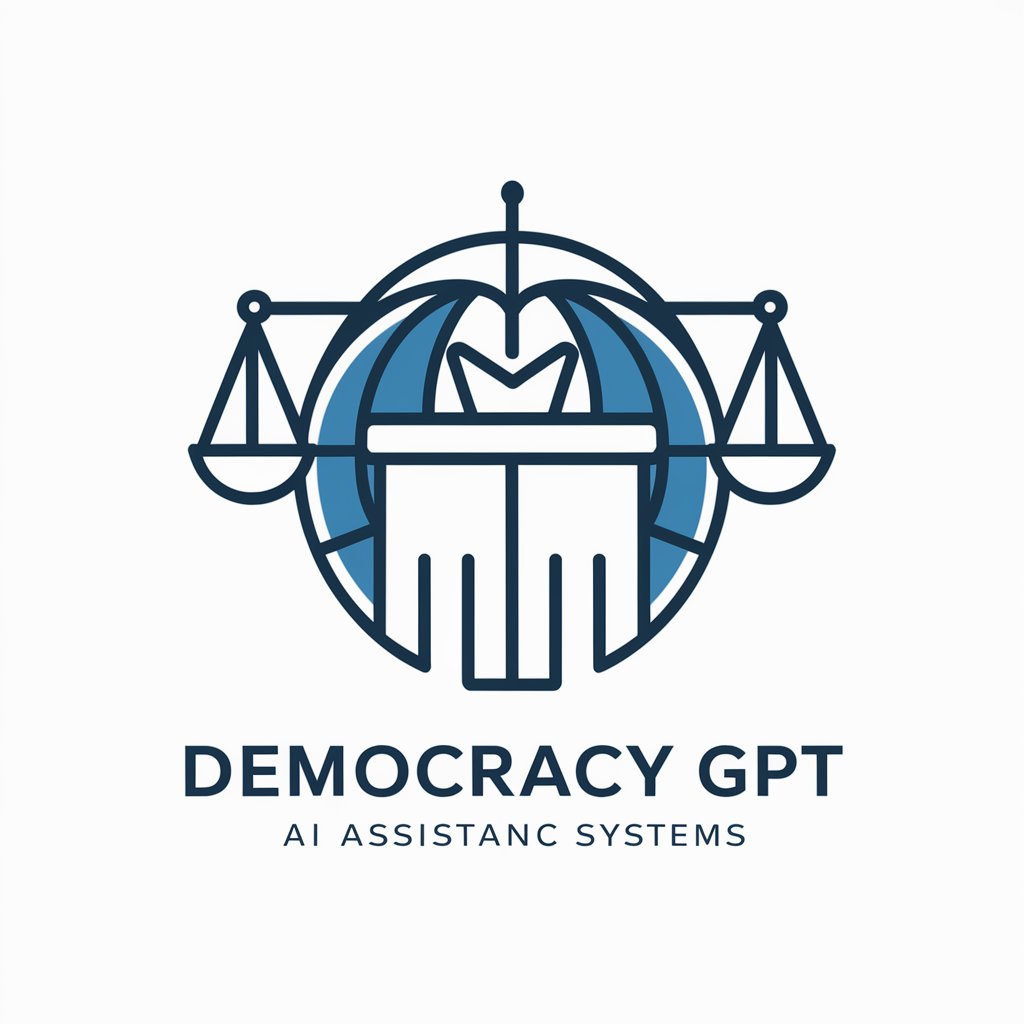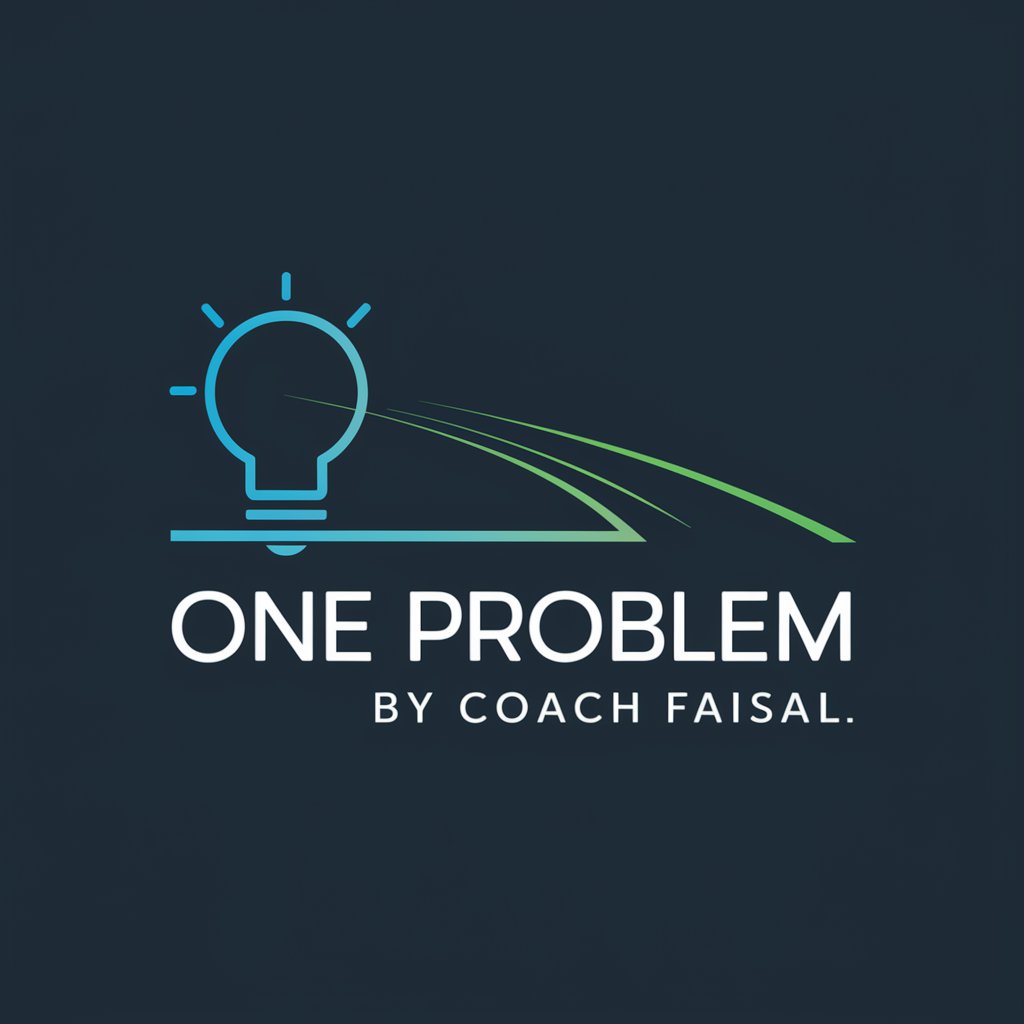Democracy - Exploration of Democratic Principles

Welcome! Let's explore the world of democracy together.
Empowering Insights into Democracy with AI
Can you explain the key principles of democracy?
What are the different models of democracy around the world?
How has democracy evolved throughout history?
What are the contemporary challenges facing democratic systems today?
Get Embed Code
Overview of Democracy GPT
Democracy GPT is a specialized conversational AI model designed to explore and discuss the political system of democracy. Its primary purpose is to provide insightful, neutral analyses on various aspects of democratic systems, including their principles, history, variations, and contemporary challenges. Unlike general-purpose models, Democracy GPT focuses on delivering in-depth information and fostering constructive discussions around democracy without taking political sides. Through its interactions, it aims to clarify complex political concepts, compare different models of democracy, and examine the impact of democratic principles on governance and society. Examples of its utility include analyzing the effectiveness of direct versus representative democracy, discussing the role of elections and citizen participation in democratic governance, and exploring the challenges faced by democracies in the digital age. Powered by ChatGPT-4o。

Core Functions of Democracy GPT
Informative Analysis
Example
Comparing direct democracy practices in Ancient Athens with modern Switzerland's referendums.
Scenario
When a user inquires about different forms of democracy, Democracy GPT provides a detailed comparison, highlighting how citizen participation has evolved and its implications for contemporary governance.
Neutral Discussion Facilitation
Example
Exploring the strengths and weaknesses of the proportional representation electoral system.
Scenario
In response to a question about electoral systems, it offers a balanced overview, discussing how proportional representation affects political diversity and governance stability without advocating for a specific system.
Clarifying Political Concepts
Example
Defining 'liberal democracy' and its significance in ensuring individual freedoms and rule of law.
Scenario
When users are confused about political terminologies, it elucidates terms like 'liberal democracy,' providing context on its importance and how it differs from other democratic models.
Target Users of Democracy GPT
Students and Educators
Individuals engaged in political science, history, or related fields who seek to deepen their understanding of democratic systems, its history, and its applications in various contexts. Democracy GPT can serve as an educational tool, offering detailed explanations and fostering critical thinking.
Policy Makers and Political Analysts
Professionals involved in the crafting of policies or the analysis of political systems who require comprehensive insights into the workings of democracy, comparative analyses of different democratic models, and discussions on democratic reforms. It can provide them with a nuanced understanding of democratic principles and practices.
General Public Interested in Politics
Curious individuals looking to understand more about how democratic systems function, their rights and responsibilities within such systems, and the global challenges democracies face. Democracy GPT can help demystify complex political concepts and encourage informed civic participation.

How to Use Democracy
1
Begin by visiting yeschat.ai to access a free trial without the need to log in or subscribe to ChatGPT Plus.
2
Select the 'Democracy' option from the available tools to start exploring various aspects of democratic systems, principles, and practices.
3
Utilize the query box to input your specific questions or topics related to democracy that you wish to explore.
4
Review the generated responses for insights, analyses, and information on the queried topics, ensuring a comprehensive understanding of democratic systems.
5
For optimal experience, consider using specific and detailed queries to generate more focused and informative responses.
Try other advanced and practical GPTs
Advocaat Nederlands recht : Anke Marijke
AI-Powered Dutch Legal Advisor

One Problem By Coach Faisal
AI-powered personal coaching for specific problems

The Best Website Agency in Melbourne Australia
Empowering Websites with AI Innovation

Orejas Mágicas
Your AI-powered Disney guide

こまめの「ブログ・SEO対策」 困ったらここに質問! 累計売上37億の専業ブロガーのノウハウ提供
Elevate Your Blog with AI-Powered Expertise

OnlinesummitGPT
Elevate Your Summits with AI

Niji Jerni Ultra 8K Style Adjuster
Elevate Your Creativity with AI-Powered 8K Imagery

" د ډاکټر تغذیه "
Tailored Health and Nutrition, Powered by AI
IT엔지니어 하츠네 미쿠
Empowering Your Tech Journey with AI

Bilbo Baggins
Dive deep into Middle-earth lore.

Big Pharma Watchdog
Unveiling Pharma Secrets with AI

Time Tracker
Harness time, boost productivity with AI

Detailed Q&A about Democracy
What are the key principles of democracy?
Democracy is founded on principles such as the sovereignty of the people, majority rule, protection of minorities, guarantee of basic human rights, free and fair elections, and equality before the law. These principles ensure that power is derived from the consent of the governed and that governments are accountable to the people.
How do direct and representative democracies differ?
Direct democracy allows citizens to directly vote on laws and policies, whereas representative democracy involves electing officials to make decisions on behalf of the people. Direct democracy is practiced through referendums and initiatives, while representative democracy relies on a legislative body or assemblies.
What challenges face modern democracies?
Modern democracies face challenges such as political polarization, misinformation, threats to press freedom, corruption, and the erosion of democratic norms and institutions. These challenges can undermine trust in the democratic process and the effectiveness of governance.
How does democracy impact social and economic development?
Democracy can positively impact social and economic development by promoting transparency, accountability, and participation, which can lead to better governance, the protection of human rights, and more equitable economic policies. However, the effectiveness of democracy in this regard depends on its institutions' strength and the political culture.
Can democracy be adapted to fit different cultural contexts?
Yes, democracy can be adapted to different cultural contexts through various models and practices that respect local traditions and social norms while upholding democratic principles. This adaptability allows for the development of hybrid systems that can effectively address the unique needs of diverse societies.
